If you’re not familiar with cricket, there’s a term called the “googly” that refers to a deceptive delivery from the bowler to the batsman. And earlier this week, Google pulled a googly of uniquely Google proportions.
If you haven’t heard yet, only queries with a “significant” amount of traffic behind them will appear in your search terms report. There’s no clarity on what that means or where the threshold lies, and the reactions from search marketers range from confused to disappointed to outright furious.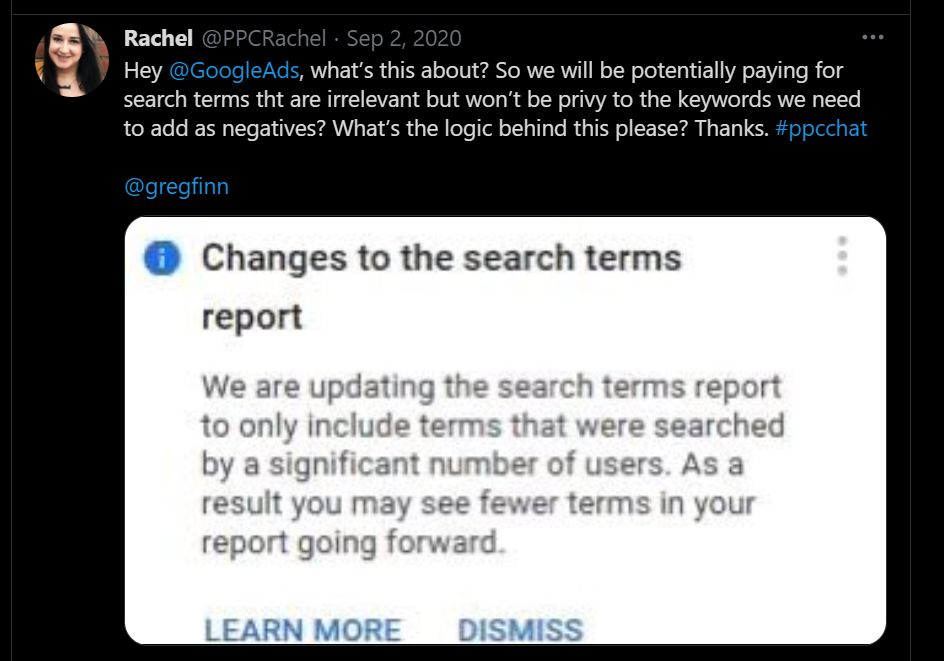
Rachel Smith’s original tweet that kicked off a storm on Twitter.
What does it mean for advertisers?
The short version: Advertisers are going to have less visibility into the search behavior that drives traffic to their ads.
A search terms report currently includes all the queries or phrases that resulted in any number of clicks for your ads — from 1 to 1 million. Search marketers use these reports to exclude terms that don’t create value by adding them as negative keywords. That might be a single click from a search term completely unrelated to your campaign, or it might be several hundred clicks from a search term that doesn’t yield enough conversions.
Without information on the search terms that fall below Google’s new threshold, there’s no way to exclude the ones that cost a business money without creating some kind of returns. Irrespective of the cost of each individual click, it can quickly add up.

An advertiser that spends tens of millions of dollars a year might not feel the impact so heavily for multiple reasons, including financial insulation and an understanding that their ad muscle comes at the cost of some wastage.
But the wasted spend of the biggest advertisers can exceed the annual budgets of some small businesses who count on Google and its plethora of data to survive, let alone thrive. With no way to prune their traffic and optimize their campaigns for real returns, small businesses will be disproportionately affected.
What’s the word on the street?
The PPC community hasn’t exactly reacted with placid acceptance or resignation, as tends to happen when Google updates their ad engine in their usual inexplicable way. This time, the reaction is much more vocal and dissenting — it’s almost unanimous how much search marketers dislike this update.
Third Door Media’s Ginny Marvin calls the update predictably “disappointing”.
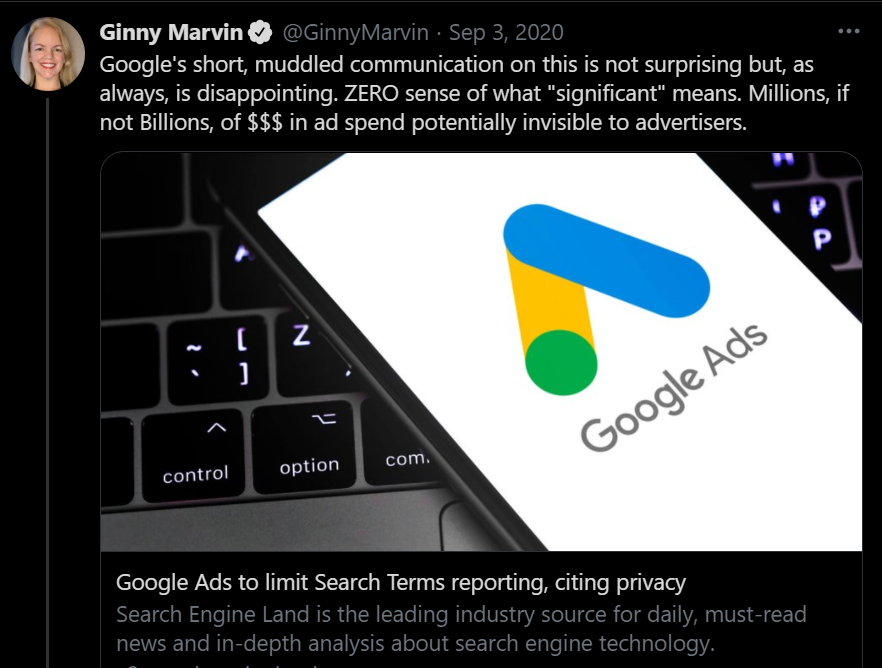
Julie F. Bacchini of Neptune Moon isn’t buying the privacy excuse. She tweets:
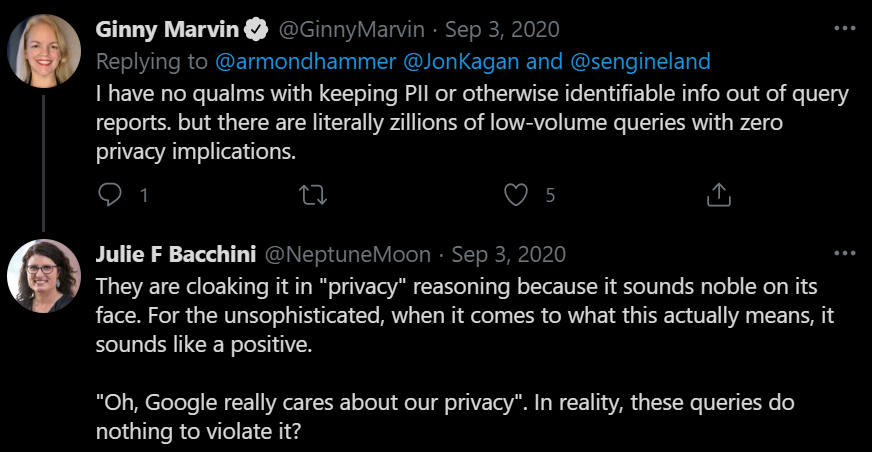
Seer Interactive founder Wil Reynolds knows exactly what’s about to happen.
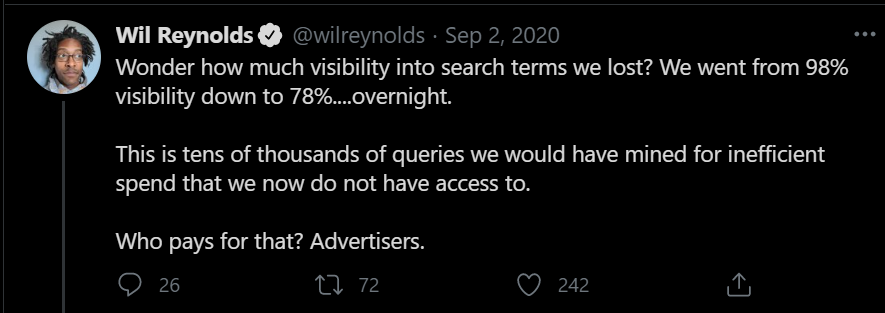
Collin Slattery did the math… and it’s not looking too good. Read what he says here.
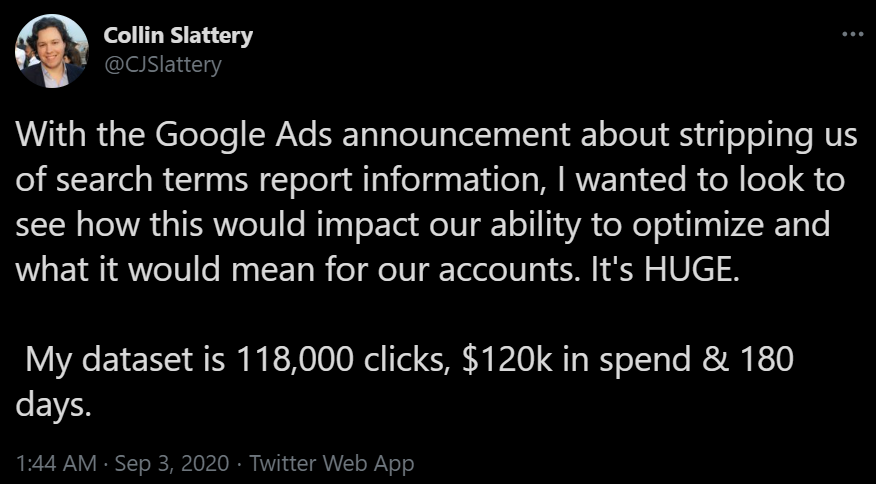
Kirk Williams presents a balanced take, as always.

Duane Brown takes some risk by telling it like it is.
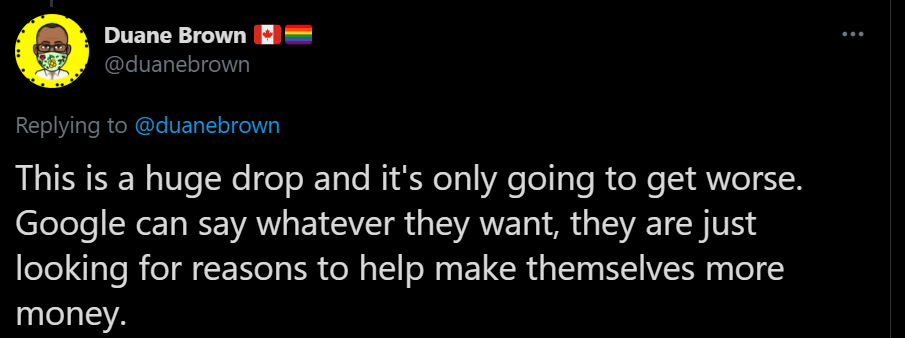
How does Optmyzr feel about this update?
Search query management is an important part of keeping search campaigns profitable. Not being able to see all the terms that accrued cost will be a disadvantage to PPC marketers. The actual impact this change has will really depend on how many queries Google recognizes on average as low-volume and doesn’t include in the search terms report.
For more expensive verticals like legal, the cost of each query adds up. It will make marketers more reserved about running broad-match keywords to mine for profitable search queries. We may see a transition to more specific match types, like exact and phrase.
This change probably fits with Google’s strategy of getting more advertisers on automated bidding, and gives them more room to experiment with which queries they show your ads for.
Our team at Optmyzr is keeping a close eye on these changes, so that we can let our customers know if and how our platform will be impacted once we know more.









